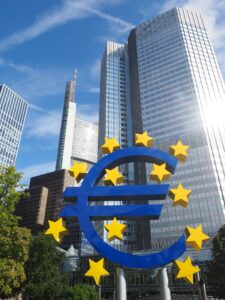 „If you work, you do not have time to make money” according to an increasingly popular Romanian saying, confirmed by the data published by Eurostat. Data which places us at the top of the EU by the proportion of employed people who are in poverty according to criteria uniformly established internationally.
„If you work, you do not have time to make money” according to an increasingly popular Romanian saying, confirmed by the data published by Eurostat. Data which places us at the top of the EU by the proportion of employed people who are in poverty according to criteria uniformly established internationally.
Specifically, as a technical definition, it is about those who, although they work, have an equivalised disposable income below 60% of the national equivalised median income (after considering the social transfers).
The indicator is the reference for the European statistics on income, Social Inclusion and Living Conditions – SILC (as abbreviated in English).
The European rankings with the latest available values (2016 and, for some countries, 2015 but the differences are not significant from one year to the next) of the proportion of poor people who work (obviously, with legal forms and registered under the current regulations in force) are as follows:
*
- Country Proportion of poor people who are employed (% of total)
*
It can be noticed that the value of 21.5%, published by Eurostat for 2016, places us at the top of the European ranking of poor people who work. A ranking where we easily outrun three southern countries, Greece, Spain and Italy (an interesting Balkan-Latin mix from a socio-cultural perspective), as well as two colleagues from the eastern bloc, Bulgaria (our poorer colleague of the EU integration wave has 65% less than us, though!) and Poland (the economy that is similar to ours, 73% below us).
The fact is that we have a lot to do before getting close to the European average, which is less than half our level, even though we shall never reach the Czech Republic or Slovakia. But we can look more closely at Germany or France if only because the experience of Baltic countries, relatively close to each other in terms of GDP per capita measured in purchasing power parities, shows that it is possible to go in that direction.
Evolution over time: EU accession has taken us away from Europe in terms of value assigned to work
Regarding the evolution of the rate of poor employed people in Romania, some conclusions, both surprising and worrying, can be drawn.
However, instead of getting closer to the European average after joining the EU in 2007, we have distanced ourselves from it, which has devalued work and any performance of a useful, taxed activity.
*
- Evolution of poor employed people in Romania (2007-2016)
- Year
- Poor employed people (%)
*
From „only” 19% in 2007, the value went up last year to 21.5% of employees, despite the steady measures of increasing the minimum national wage taken last year. The most ironic thing, the peak of poverty among the employed people has been reached in 2014. Precisely the year when we recovered to the GDP from the reference year of 2008, which confirms on whose expense the economy has been relaunched.
The sudden jump between 2010 and 2011, from where it seems that we are unable to recover, was related to the bizarre action of cutting the wages (without adjusting the pensions, which has generated a major imbalance that still penalizes investments and our future even today), in the same time with and not alternatively to increasing taxation on consumption.
The way in which VAT has subsequently been cut and wages increased has not eliminated the distortion introduced in 2010 not to mention it does not reverse the trend and bring us closer to the European practice.
It is also the reason why working (in the country) is not a goal. It is simply not a minimum guarantee that you end up making big money and earn it in an honest way.











